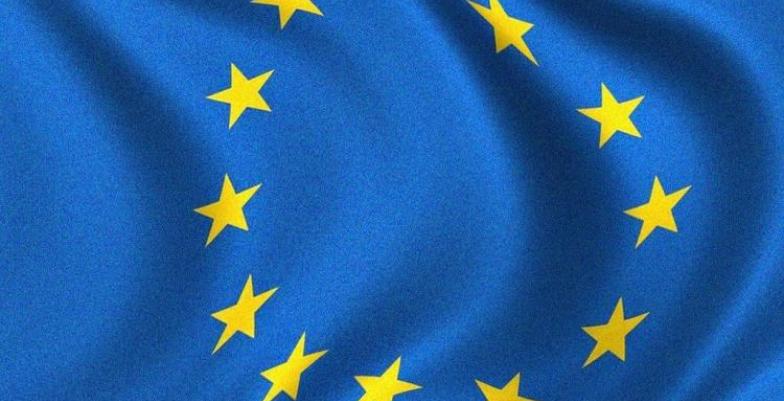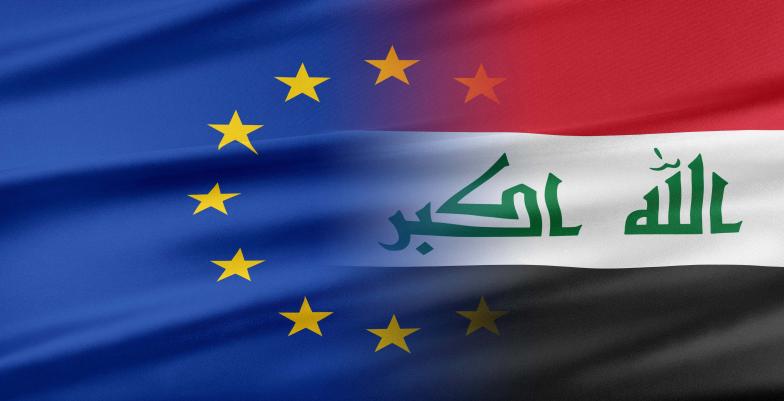RELATIONS WITH THE EU
The European Union and Iraq
The European Union has been present in Iraq since 2005, through a Delegation in Baghdad. The EU has stood by Iraq as a reliable partner, committed to the stability and reconstruction of the country and surrounding region. As part of these efforts, they have promoted human rights, democracy and the rule of law.
Political Relations
Since 2003, the European Union has invested over EUR 1 billion in assistance to Iraq, becoming one of the main international donors. Da’esh’s takeover of one third of the country devastated productive infrastructure, and the resulting unprecedented humanitarian crisis has prompted a renewed E.U. contribution to the country since 2014. The EU pledged EUR 400 million in new grants to support Iraq’s reconstruction and economic reforms. By the end of 2019, all of these commitments, as well as additional funds for humanitarian assistance and security sector reforms, had been distributed, bringing EU contribution close to EUR 500 million in the new humanitarian-stabilisation-development nexus.
The EU has made a commitment to build a partnership for a better future for the peoples of Iraq and Europe.
EU Strategy for Iraq
The EU is a long-term partner of Iraq, cooperating with the country in the fields of humanitarian aid, stabilisation, security and political reform. In response to the challenges the country is facing following the territorial defeat of Da'esh, the EU adopted a new strategy for Iraq on 22 January 2018. It focusses on the following strategic objectives:
- Preserving the unity, sovereignty and territorial integrity of Iraq as well as its ethnic and religious diversity.
- Strengthening the Iraqi political system by supporting Iraqi efforts to establish a balanced, inclusive, accountable, and democratic system of government.
- Supporting the Iraqi authorities in delivering humanitarian aid.
- Supporting the Iraqi authorities in stabilising the country.
- Promoting sustainable, knowledge-based and inclusive economic growth and job creation.
- Promoting an effective and independent justice system, which ensures accountability.
- Establishing a formal migration dialogue with Iraq.
- Supporting and fostering Iraq’s good relations with all its neighbours.
EU Advisory Mission (EUAM)
In response to a request from the Iraqi authorities for support in reforming the civilian security sector in line with the European Council conclusions on Iraq on 19 June 2017, the EU agreed on 17 July 2017 to deploy a civilian common-security-and-defence-policy (CSDP) mission to Baghdad. The European Union Advisory Mission (EUAM Iraq) was officially launched on 16 October 2017 and deployed in November 2017. The mandate of EUAM Iraq has subsequently been extended until 2024 and its staff has nearly doubled, with a total budget amounting to EUR 70 million until 2024. The mission focuses on assisting the Iraqi authorities in the implementation of the civilian aspects of the Iraqi Security Strategy. EU experts are providing advice and assistance in priority work areas, responding to the needs of the relevant authorities.
EU-Iraq Partnership and Cooperation Agreement
The EU-Iraq Partnership and Cooperation Agreement (PCA) is the first contractual relation between the two countries. As such, it highlights the long-term engagement of the EU in creating a legal framework for cooperation with Iraq on areas of mutual interest. The objectives of this partnership (between the EU, EU Member States and Iraq) are threefold; to provide an appropriate framework for political dialogue between parties, allowing the development of political relations; to promote trade, investment and harmonious economic relations between the parties (fostering sustainable economic development); to provide a basis for legislative, economic, social, financial and cultural cooperation.
The EU-Iraq Partnership and Cooperation Agreement was signed on 11 May 2012.
The PCA now provides mechanisms which consolidate cooperation between the EU and Iraq in areas of mutual interest. At the core of the PCA there is regular, high-level political dialogue that focuses on peace, foreign and security policy, national dialogue and reconciliation, democracy, the rule of law, human rights, good governance and regional stability and integration.
European Civil Protection and Humanitarian Aid Operation
As of 2018, Iraq entered a new phase of international engagement, with an increased focus on early recovery and development. The needs of citizens had also changed; civilians who remain in camps now need to be taken care of, and camp conditions need to be brought up to basic minimum standards. Outside the camps, in severely affected but neglected areas, there is a continuing need for provision of basic health, education, water and sanitation services. Both inside and outside camps, many people still suffer from the effects of the war, requiring physical rehabilitation, including prosthetics, and other kinds of assistance. Many people and communities thought to have been associated with the Islamic State group's insurrection face involuntary movements (either forced or obstructed returns to their areas of origin), protracted displacement in camps and, in some cases, an alarming lack of access to basic services. More broadly, the Iraqi economy remains disrupted, with widespread poverty as a result. Humanitarian relief agencies in Iraq assisted 3.4 million people in 2018, and plan to assist nearly 2 million of the most acutely affected during 2019.








